Upcoming opportunities
Every week, we update this list with new meetings, awards, scholarships and events to help you advance your career. If you’d like us to feature something that you’re offering to the bioscience community, email us with the subject line “For opportunities list.” ASBMB members’ offerings take priority, and we do not promote products/services. Learn how to advertise in ASBMB Today.
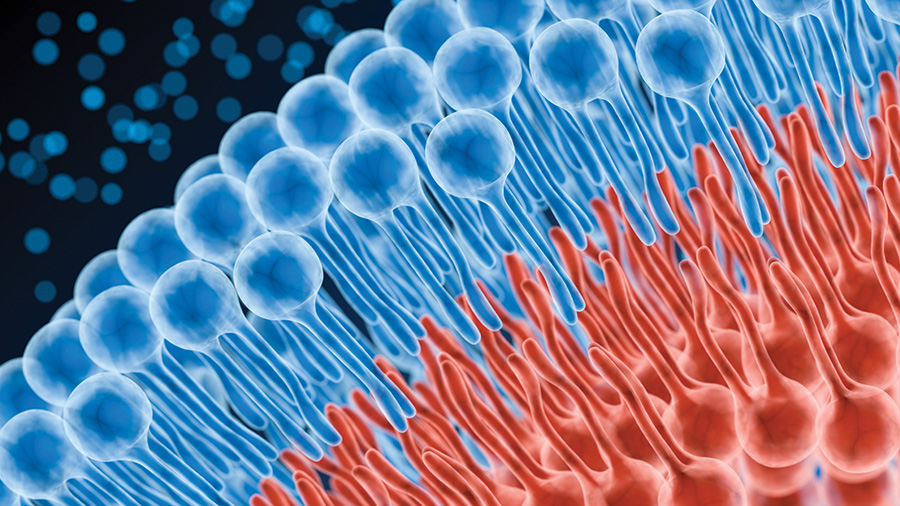
Jan. 29: LRD seminar returns
ASBMB's Lipid Research Division seminars are monthly virtual presentations from young researchers highlighting their recent work in the field of lipids. They are hosted by ASBMB's Lipid Research Division (LRD). Check out the lineup of January's seminar, which will be at 12 p.m. Eastern on Jan. 29:
- "Cholesterol-dependent homeostatic regulation of very long chain sphingolipid synthesis" by Yeongho Kim, Yale University
- "SGMS2 variants linked to skeletal dysplasia disrupt cellular sphingomyelin gradients" by Katharina Kott, University of Osnabrueck
Jan. 30: View the Dr. Paul Janssen Award Symposium, "Regulated degradation of RNA and proteins"
ASBMB member Lynne Maquat and Alexander Varshavsky were awarded the 2024 Dr. Paul Jannsen Award for "their fundamental discoveries in the regulated degradation of RNAs and proteins." A hybrid award symposium will be held to celebrate their work on Jan. 30 at 2 p.m. Eastern. The event is free to attend, both in-person and online. Learn more.
Jan. 31: Deadline to apply for NIH's pilot Science of Science Scholars Program
The National Institutes of Health (NIH) is accepting applications for its pilot Science of Science Scholars Program, through which researchers will have access to NIH administrative data as a special volunteer for a one-year term to analyze internal NIH administrative data and conduct in-depth analyses. Learn more.
Feb. 7: Deadline to apply for NIIMBL's college student emersion program about biopharmaceutical industry careers
The National Institute for Innovation in Manufacturing Biopharmaceuticals' NIIMBL eXperience is a program designed to introduce college freshmen and sophomores to biopharmaceutical industry careers. Participants will have the opportunity to tour facilities, engage in diversity discussions/panels, and receive professional development support such as resume writing and networking. Learn more.

Feb. 12: ASBMB Breakthroughs webinar on lipidomics, shotgun lipidomics and functional lipidomics for Alzheimer’s research
The ASBMB Breakthroughs webinar series offers a window into the cutting-edge biochemistry and molecular biology research driving discovery. February's webinar, "Lipidomics, shotgun lipidomics and functional lipidomics for Alzheimer’s research," will feature Xianlin Han of the University of Texas Health Science Center, who will cover the research Han's lab is conducting on the use of shotgun lipidomics on biological/biomedical research. Specifically, the research on sulfatide, which is a class of sphingolipids predominantly present in the extracellular leaflet of myelin sheath and is synthesized by cerebroside sulfotransferase (CST) in oligodendrocytes in the CNS. The concepts, technical developments, research strategies and findings by lipidomics will be extensively discussed. The webinar will start at 12:15 p.m. Eastern. Learn more and register.
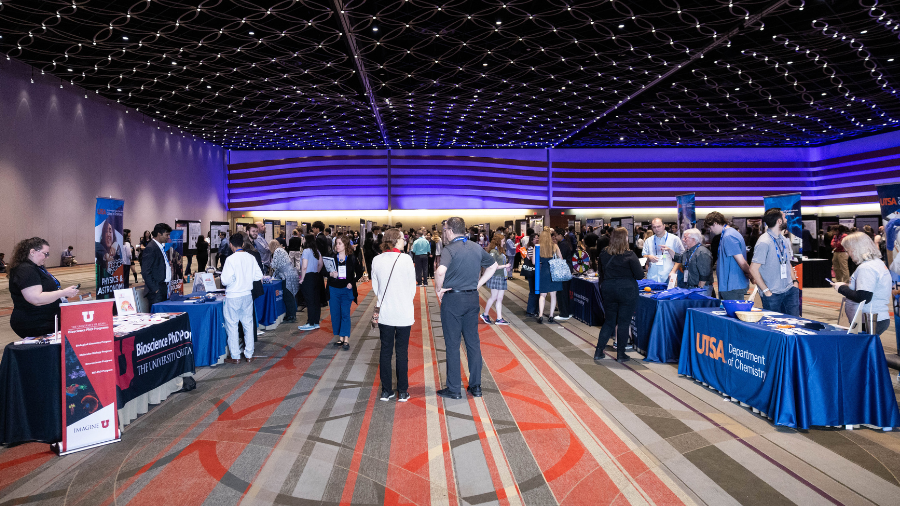
Feb. 15: Book a recruiter table at the ASBMB annual meeting’s career and education fair
Looking to connect with top talent and future leaders? This event provides direct access to a diverse group of talented scientists, including graduate students, postdocs and early-career scientists. Why book a recruiter table?
- Showcase your organization: Increase your visibility among top-tier candidates eager to learn about opportunities at your organization.
- Build your talent network: Connect with young scientists bringing the knowledge and determination to solve real-world problems.
Feb. 15: Deadline to apply for a post-bac at Dartmouth Cancer Center
Applications are now being accepted for the Individualized Mentorship Program to Accelerate Cancer Training (IMPACT) at Dartmouth Cancer Center. Through this post-baccalaureate research program, which is funded by the American Cancer Society, fellows, who are members of a minority group underrepresented in science as defined by the National Institutes of Health, will "receive individualized research experience, professional development activities, and mentorship with culturally competent mentors." Fellows will be paid $40,000 per year and may also receive stipends to cover expenses. Learn more.

Feb. 18: Early registration deadline for the 2025 ASBMB Annual Meeting in Chicago
The 2025 annual meeting of the American Society for Biochemistry and Molecular Biology takes place April 12–15 in Chicago. When you attend the 2025 ASBMB Annual Meeting, you’ll shape what’s possible — for your science, for your career, and for the future of biochemistry and molecular biology research. Register by Feb. 18 to secure a reduced rate and save up to $120.
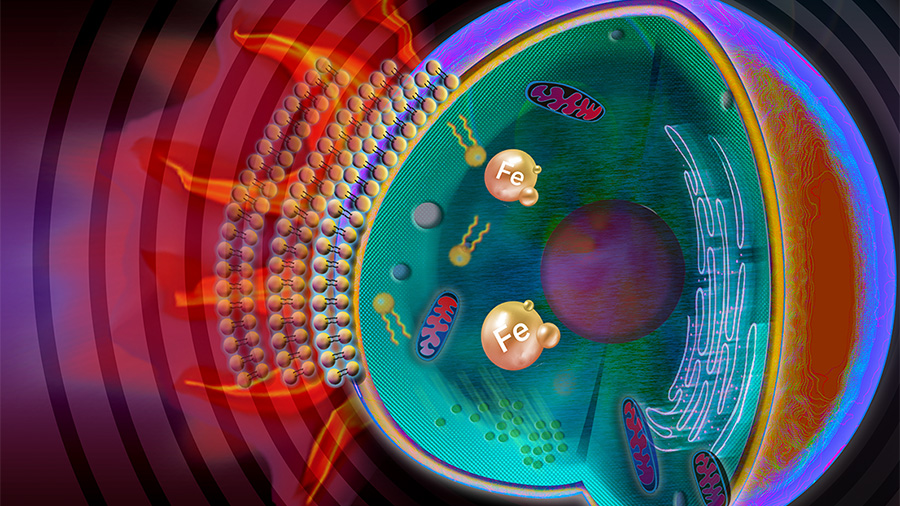
Feb. 18: Deadline to submit an abstract for ASBMB's meeting on ferroptosis
Ferroptosis is a form of cell death that integrates biochemistry and molecular biology related to iron homeostasis, redox biology and diverse aspects of metabolism. This meeting, which will be held concurrently with the 2025 ASBMB Annual Meeting in Chicago, April 13–15, 2025, will focus on the biochemical and molecular aspects of ferroptosis and how they relate to normal homeostasis and disruptions of homeostasis. Recent exciting advances in new pathways controlling ferroptosis make a meeting on this topic timely. Attendees will meet experts, present their research, get new ideas and form new collaborations in this rapidly growing field. Abstracts are now being accepted. Learn more about the meeting and submit your abstract by Feb. 18. Plus, register by Feb. 18 to save $50.
Feb. 2025: Enter the Lasker Foundation's 2025 essay contest
In Feb., the Lasker Foundation will be accepting entries for its 2025 essay contest. The contest "engages early career scientists and clinicians from the US and around the globe in a discussion about big questions in biology and medicine and the role of biomedical research in our society today." Stay tuned for more details.

March 6: Deadline to apply for Promoting Research Opportunities for Latin American Biochemists
The PROLAB program allows graduate students and postdoctoral fellows to spend up to six months in U.S. or Canadian laboratories. Participants get access to technologies and expertise that may not be readily available in their home countries, allowing them to grow their skills and contribute to building capacity in the life sciences at home. PROLAB is a joint venture between the Pan-American Association for Biochemistry and Molecular Biology, the International Union of Biochemistry and Molecular Biology, and the American Society for Biochemistry and Molecular Biology. Learn about past awardees' experiences and apply by March 6.
March 31: Free course on career planning
"Career planning for early career scientists" is a free online course by iBiology that will help participants learn valuable career planning skills. The course is open for enrollment until March 31. Learn more.
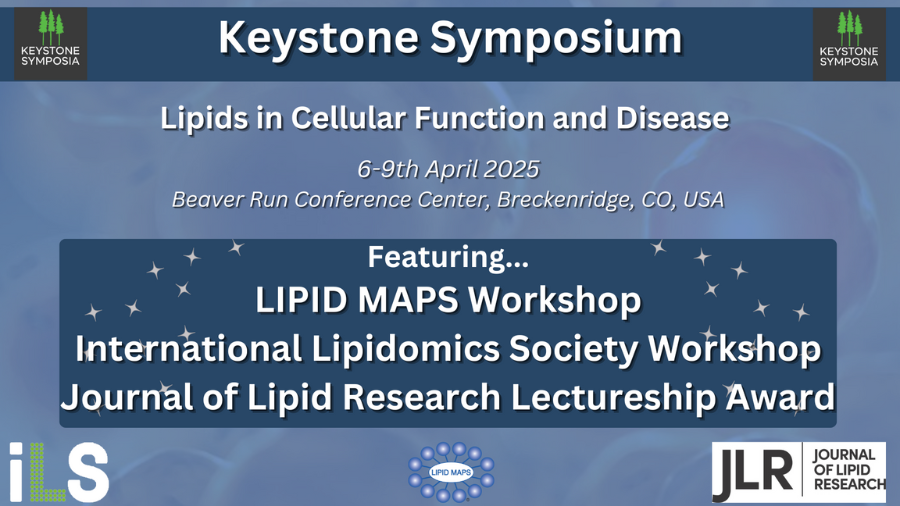
April 6–9: Keystone Symposium on lipids in cellular function and disease
The upcoming Keystone Symposium on lipids in cellular function and disease will feature a Journal of Lipid Research Lectureship Award on April 7! Check out the program.
More details about the event:
- The conference will be held April 6–9, 2025 in Breckenridge, Colorado. It will highlight the latest advances in lipid functions and roles in disease and "act as a catalyst for bringing together interdisciplinary discoveries in hashtag#lipidomics, ranging from basic biochemistry and cell biology to clinical studies." The JLR Lectureship Award will take place during the LIPID MAPS/Lipidomics Society workshop.
- Register early, by Feb. 25, to save $200.
- Watch this video to hear from Valerie O'Donnell at Cardiff University about the benefits of attending the meeting.
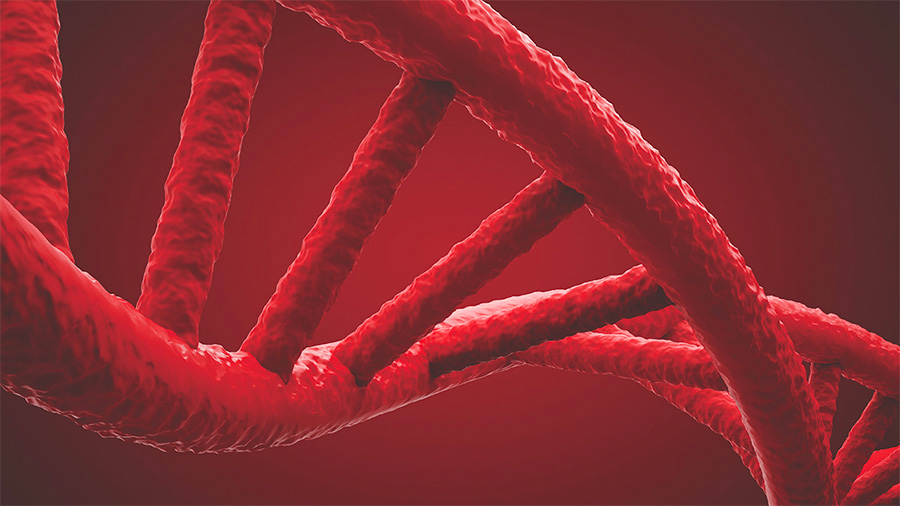
June 26–29, 2025: ASBMB's evolution and gene expression meeting
This meeting, which will be held at Stowers Institute in Kansas City, Mo., will showcase the most recent insights into the cis-regulatory code; how cis-regulatory information is read out by transcription factors, signaling pathways and other proteins; how cellular diversity is created during development; and how we can study this problem using cutting-edge genomics technology and computational methods. Learn more and submit an abstract by May 7.
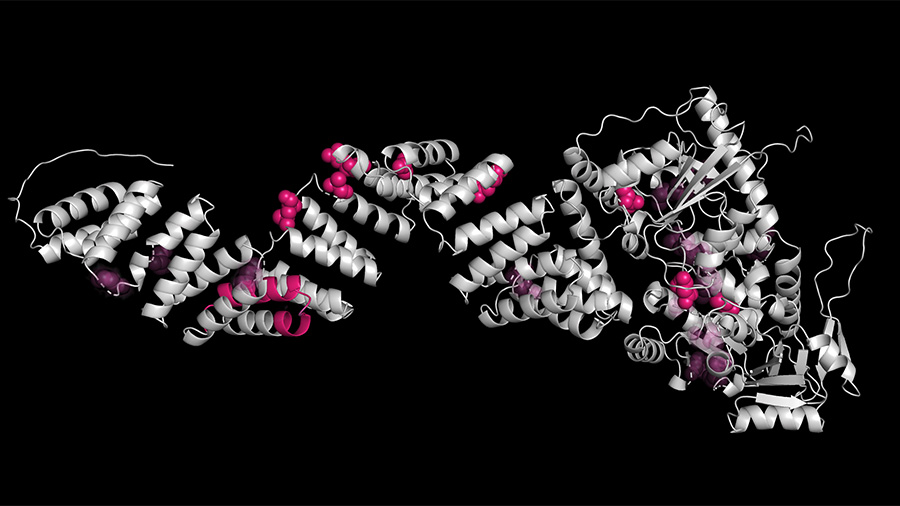
July 10–13, 2025: ASBMB's O-GlcNAc meeting
This meeting, which will be held in Durham, N.C., will cover O-GlcNAc cycling enzymes and the O-GlcNAc modification in modulating protein function in basic biological processes as well as in disease states, including diabetes, cancer, cardiovascular disease and neurological diseases. Graduate and postdocs will be selected for oral talks and discuss their work at poster sessions. Learn more and submit an abstract.
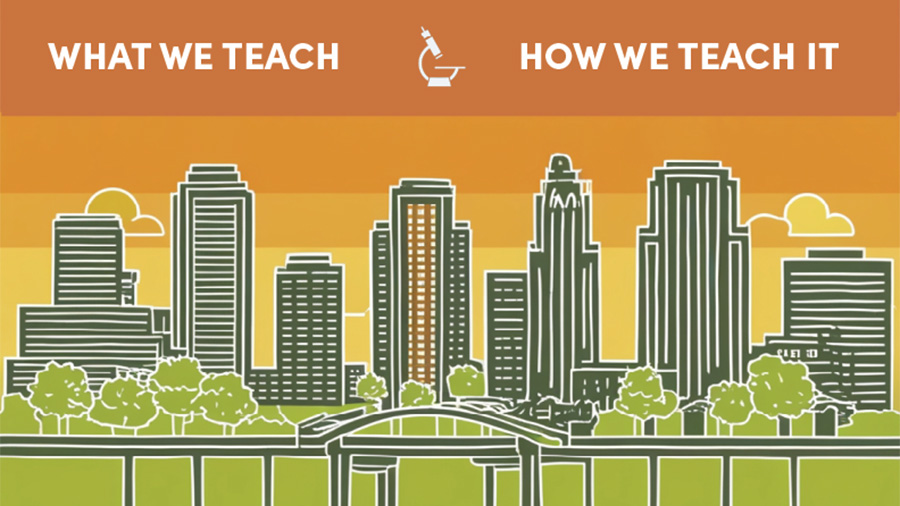
July 24–27: ASBMB meeting on transforming undergraduate education in the molecular life sciences
Join us at Macalester College in St. Paul, Minn. for a small interactive, education-focused ASBMB meeting to re-examine existing practices and develop new engaging approaches to supporting student success in biochemistry and molecular biology. Reconnect with peers, meet new colleagues and increase your network of education-minded professionals while exploring the Twin Cities.
Talks and panel discussions will include sessions on the skills, competencies and key concepts we teach through biochemistry and molecular biology content, as well as on the pedagogical approaches that lead to student achievement. Each day will begin with a keynote talk on topics such as culturally-responsive pedagogy, an indigenized chemistry curriculum, alternative grading practices and fidelity of implementation. Keynotes will be followed by panel discussions and break-out sessions, with opportunities to learn about several education-focused NSF-funded projects, including CUREs, assessment, case-based learning and biomolecular visualization. Attendees will also have the opportunity to meet with program directors to learn about funding opportunities for education projects. Anyone interested in biochemistry and molecular biology education — from experienced practitioners to postdocs and graduate students considering careers involving teaching — is encouraged to attend. Learn more and stay tuned for more information.

Aug. 17–21, 2025: ASBMB's symposium on proteomics
This five-day symposium, held at the Broad Institute of MIT and Harvard in Cambridge, Mass., will be an international forum for discussion of the remarkable advances in cell and human protein biology revealed by ever-more-innovative and powerful proteomics technologies. The symposium will juxtapose sessions about methodological advances with sessions about the roles those advances play in solving problems and seizing opportunities to understand the composition, dynamics and function of cellular machinery in numerous biological contexts. It will also articulate urgent, unmet needs and unsolved problems that will drive the field in the future. In addition to talks by invited plenary and session speakers, short talks will be selected from submitted abstracts. Registration and abstract-submission information will be available in late 2024. Learn more and sign up submit an abstract.
Do you have a great idea for a scientific event?
We are now accepting proposals for scientific events to be held in 2024 and 2025. You pick the topic, the sessions and the speakers, and we’ll do the rest.
That’s right! We’ll manage registration, market the event to tens of thousands of scientists, and handle all the logistics so that you can focus on the science.
The top areas of research interest among ASBMB members include the following, but we’ll consider all proposals:
- Protein structure and folding
- Molecular bases of disease
- Gene regulation
- Signal transduction
- Metabolism
What molecule, method or research question needs more attention? We’re here to help you realize your vision and deliver cutting-edge science to the BMB community.
Request a Cloud Lab account from the NIH
National Institutes of Health staff and affiliated researchers are invited to register for Cloud Lab accounts. The goal of this self-paced, interactive program is to remove "barriers to cloud adoption by providing no-cost, customized, and scientifically relevant training, making it easier for researchers to learn about and explore the cloud with confidence." Participants will have access to a free cloud account and $500 of credits, which are valid for up to 90 days. Learn more.
Year-round: HHMI Janelia Visiting Scientist Program
Graduate students, postdoctoral fellows and established senior investigators are all invited to participate in Janelia's Visiting Scientist Program. Janelia accepts visitor proposals on a continuous basis. Since 2007, more than 410 visiting scientists from 23 countries have participated in the program. Learn more.
Enjoy reading ASBMB Today?
Become a member to receive the print edition four times a year and the digital edition monthly.
Learn moreFeatured jobs
from the ASBMB career center
Get the latest from ASBMB Today
Enter your email address, and we’ll send you a weekly email with recent articles, interviews and more.
Latest in Careers
Careers highlights or most popular articles

Embrace your neurodivergence and flourish in college
This guide offers practical advice on setting yourself up for success — learn how to leverage campus resources, work with professors and embrace your strengths.

Upcoming opportunities
Apply for the ASBMB Interactive Mentoring Activities for Grantsmanship Enhancement grant writing workshop by April 15.

Quieting the static: Building inclusive STEM classrooms
Christin Monroe, an assistant professor of chemistry at Landmark College, offers practical tips to help educators make their classrooms more accessible to neurodivergent scientists.

Unraveling oncogenesis: What makes cancer tick?
Learn about the ASBMB 2025 symposium on oncogenic hubs: chromatin regulatory and transcriptional complexes in cancer.

Exploring lipid metabolism: A journey through time and innovation
Recent lipid metabolism research has unveiled critical insights into lipid–protein interactions, offering potential therapeutic targets for metabolic and neurodegenerative diseases. Check out the latest in lipid science at the ASBMB annual meeting.

Hidden strengths of an autistic scientist
Navigating the world of scientific research as an autistic scientist comes with unique challenges —microaggressions, communication hurdles and the constant pressure to conform to social norms, postbaccalaureate student Taylor Stolberg writes.
